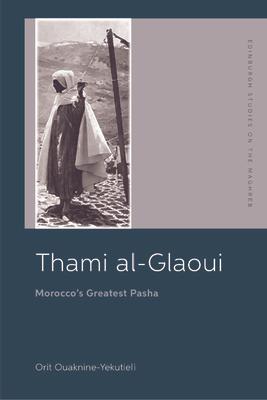Orit Ouaknine-Yekutieli examines the life and deeds of Thami al-Glaoui (1879-1956), and the multiple ways in which his story has been told. She investigates his biography as a creation continuing beyond the demise of its protagonist, asserting a conflation of history, story and storytelling. The book also reconfigures the story of major events and processes in modern Moroccan history and historiography.
Thami al-Glaoui, leader of the Amazigh Glaoua tribe and Pasha of Marrakesh throughout Morocco's colonial era (1912-56), was the third most powerful person in Morocco, after the Sultan and the French Resident-General, by the 1930s. In 1953, he was a key supporter of the deportation of Sultan Mohamed V by the French. After recanting three years later, he was pardoned by the returning Sultan, but died shortly afterwards. In the four decades that followed, al-Glaoui became a synonym in Morocco for betrayal and corruption. In the 21st century, however, the ways in which he is told became more complex, and his reputation has been somewhat revised.

Thami Al-Glaoui: Morocco's Greatest Pasha
Orit Ouaknine-Yekutieli examines the life and deeds of Thami al-Glaoui (1879-1956), and the multiple ways in which his story has been told. She investigates his biography as a creation continuing beyond the demise of its protagonist, asserting a conflation of history, story and storytelling. The book also reconfigures the story of major events and processes in modern Moroccan history and historiography.
Thami al-Glaoui, leader of the Amazigh Glaoua tribe and Pasha of Marrakesh throughout Morocco's colonial era (1912-56), was the third most powerful person in Morocco, after the Sultan and the French Resident-General, by the 1930s. In 1953, he was a key supporter of the deportation of Sultan Mohamed V by the French. After recanting three years later, he was pardoned by the returning Sultan, but died shortly afterwards. In the four decades that followed, al-Glaoui became a synonym in Morocco for betrayal and corruption. In the 21st century, however, the ways in which he is told became more complex, and his reputation has been somewhat revised.